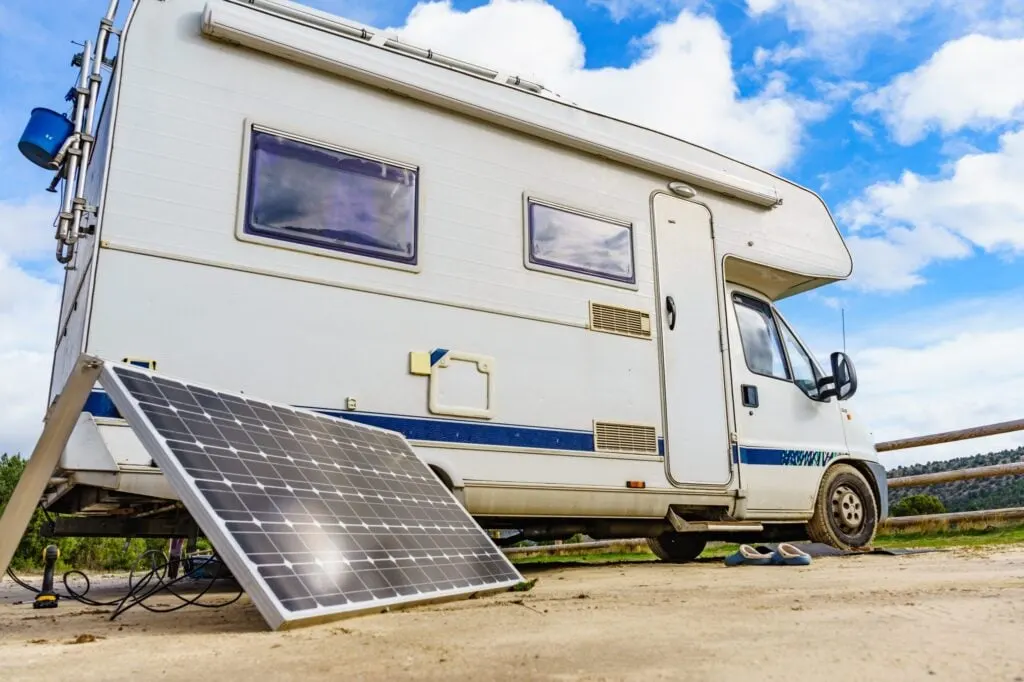
Ever thought about how to reduce your energy costs while RVing? It’s simpler than you might think!
With a few smart changes, you can enjoy a more energy-efficient RV lifestyle and keep more money in your pocket. These tips will help you make the most of your RV experience while being kind to both your wallet and the environment.
1. Upgrade to LED Lighting
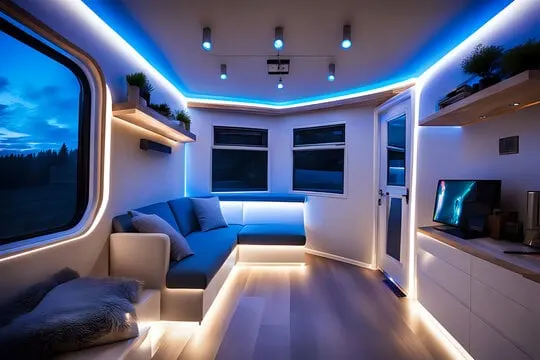
Switching to LED lights is a smart move for any RV owner. LED bulbs use much less power than traditional incandescent bulbs, saving you energy and money.
They also last longer, meaning fewer replacements and less hassle for you. Plus, LED lights come in various colors and styles, letting you create the perfect ambiance in your RV.
Making the switch is easy and can significantly reduce your overall energy consumption. It’s a simple change with big benefits for both your wallet and the environment.
2. Install Solar Panels
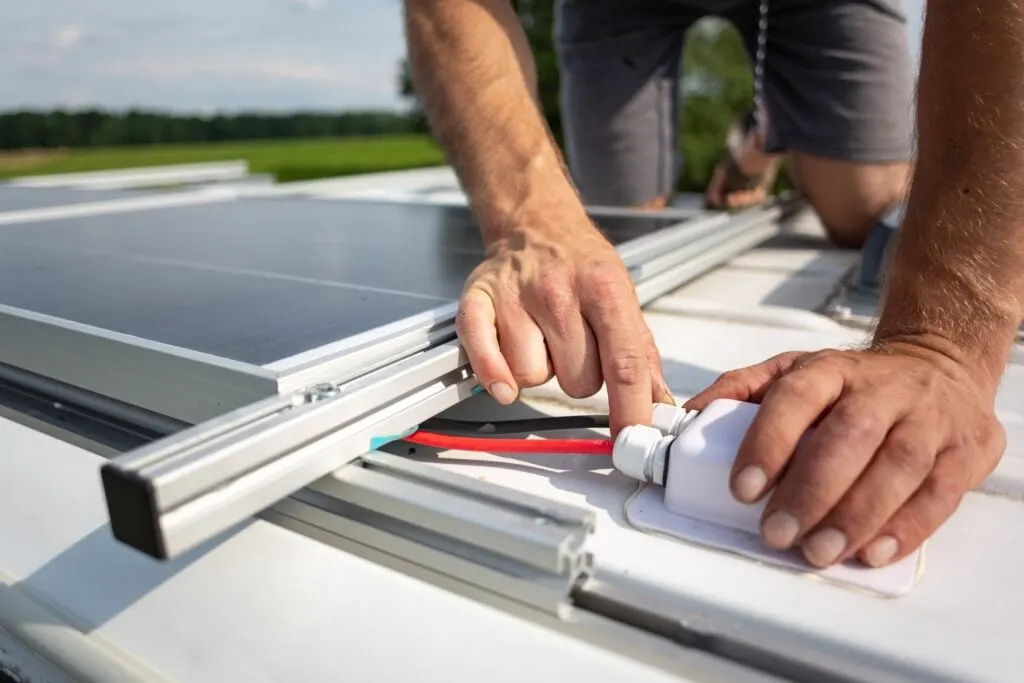
Installing solar panels on your RV is a game-changer. They provide a renewable energy source, reducing your reliance on traditional power hookups.
Solar panels can power everything from your lights to your appliances, allowing you to camp off-grid comfortably. Park in sunny spots and invest in quality panels to maximize your energy gain.
With solar power, you can enjoy more freedom and flexibility in your travels. It’s an eco-friendly choice that also helps you save on energy costs in the long run.
3. Use Energy-Efficient Appliances
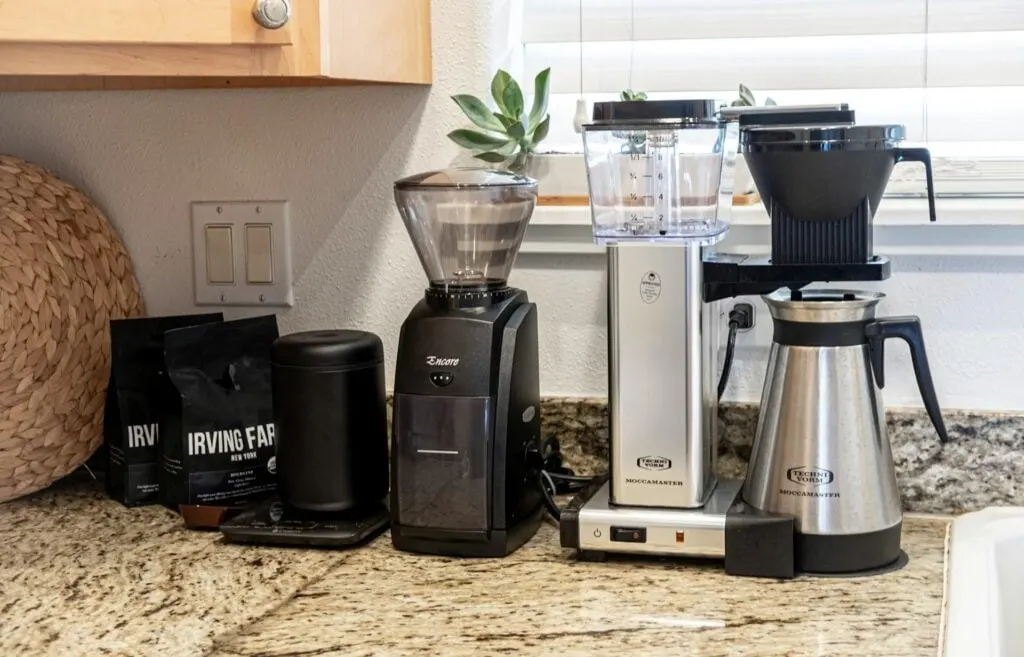
Choosing energy-efficient appliances for your RV can make a big difference. Opt for fridges, microwaves, and air conditioners designed to use less power.
These appliances not only save energy but often perform better and last longer. This means fewer replacements and repairs, saving you money and reducing waste.
Switching to energy-efficient appliances helps you conserve power, especially when you’re off-grid. It’s a smart investment that enhances your RV lifestyle while keeping your energy usage low.
4. Improve Insulation
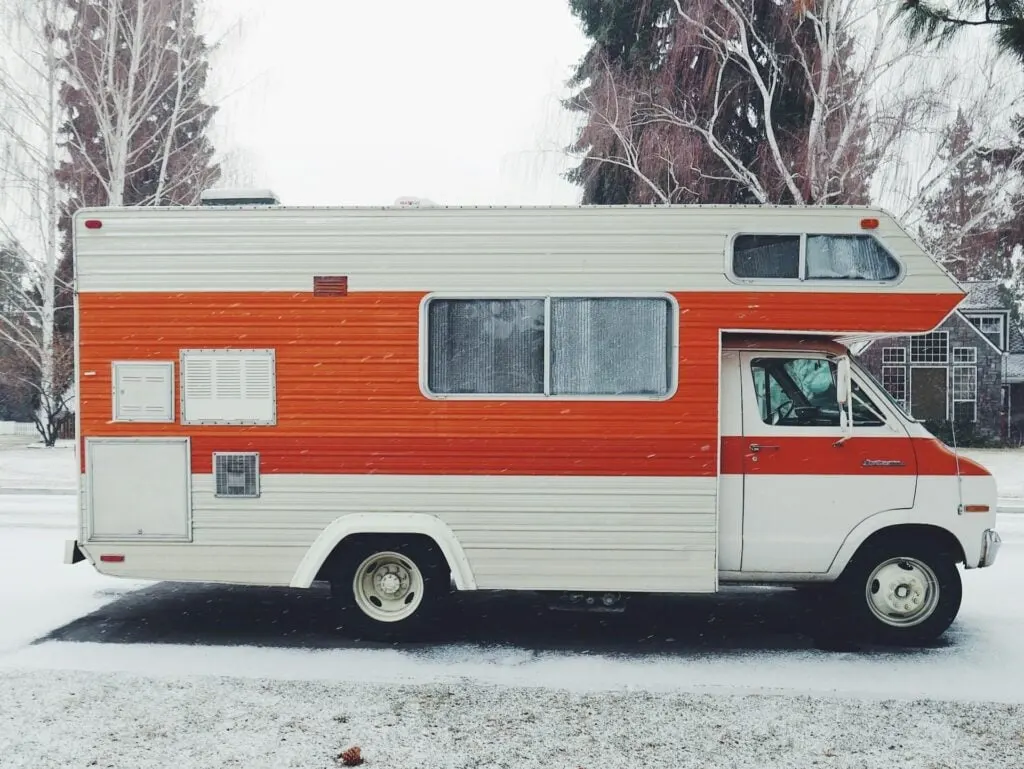
Enhancing your RV’s insulation is a great way to boost energy efficiency. Good insulation helps maintain a consistent temperature inside your RV, reducing the need for heating and cooling.
Use high-quality insulation materials for walls, floors, and ceilings. This keeps your RV cozy in the winter and cool in the summer, cutting down on energy use.
Proper insulation can make your RV more comfortable and save you money on energy costs. It’s a worthwhile upgrade that pays off in both comfort and efficiency.
5. Seal Windows and Doors
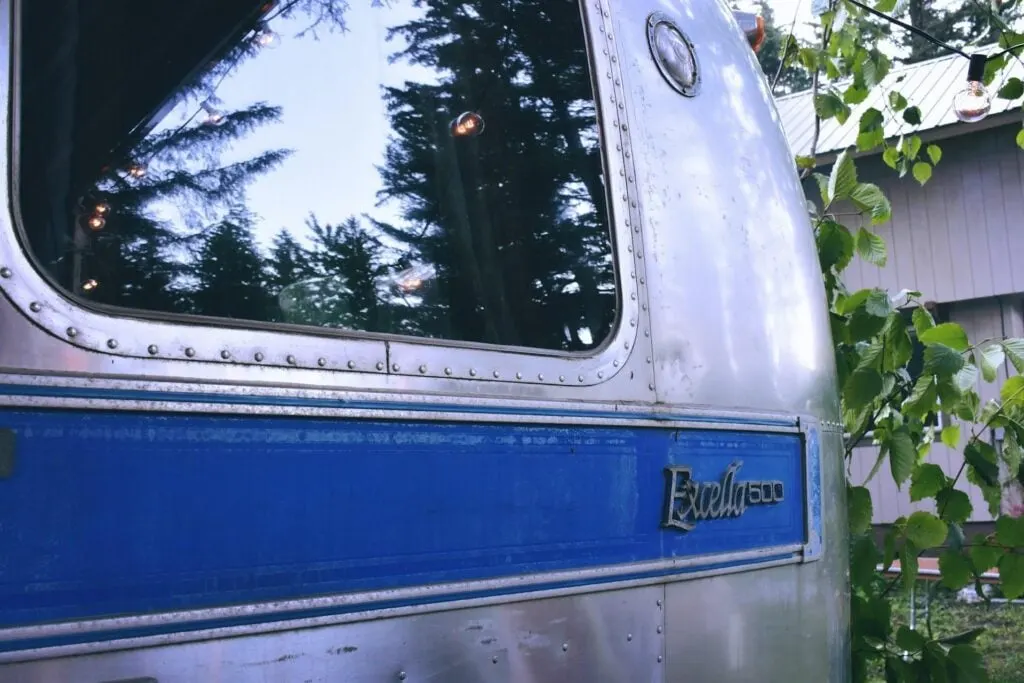
Sealing windows and doors is a simple yet effective way to improve your RV’s energy efficiency. Drafts can make it harder to maintain a comfortable temperature inside, leading to increased energy use.
Check for gaps around your windows and doors and use weatherstripping or caulk to seal them. This helps keep the cold air out in winter and the hot air out in summer.
By preventing drafts, you can maintain a consistent temperature in your RV without overworking your heating or cooling systems. It’s a quick fix that makes a big difference in energy savings.
6. Invest in a Programmable Thermostat
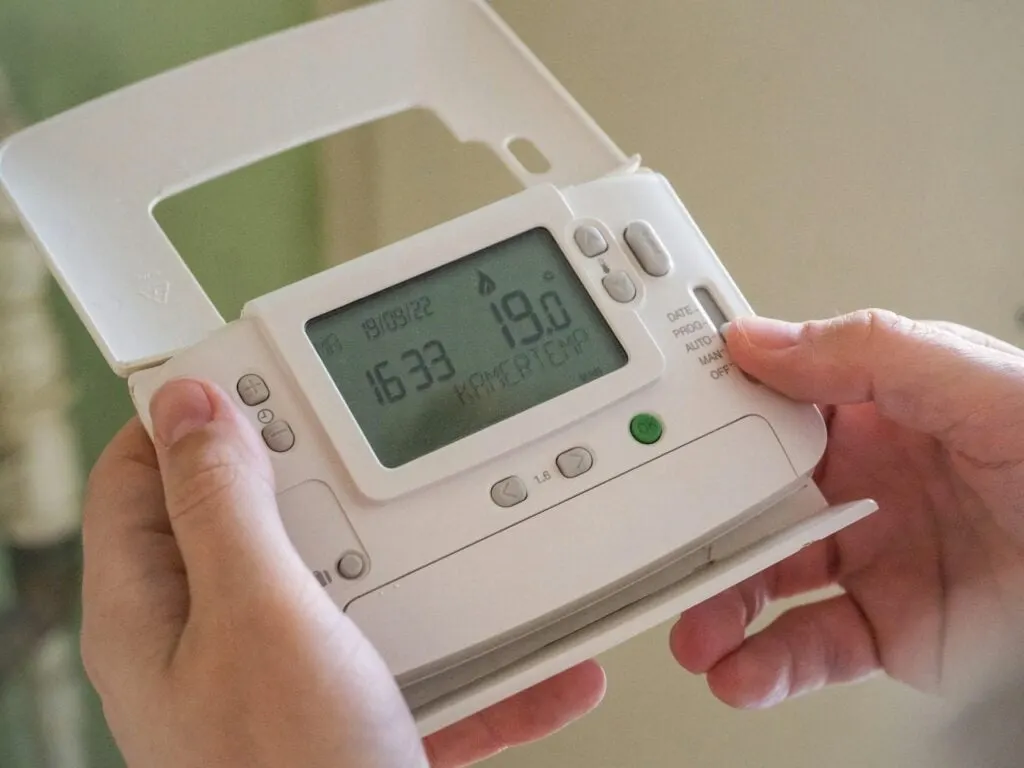
A programmable thermostat can significantly enhance your RV’s energy efficiency. It allows you to set specific temperatures for different times of the day, reducing energy use when you’re not around.
Program it to lower the heat or air conditioning while you’re out exploring and have it return to a comfortable temperature before you come back. This ensures you only use energy when you need it.
By optimizing your heating and cooling schedules, a programmable thermostat helps save energy and keeps your RV comfortable. It’s an easy upgrade that brings convenience and cost savings.
7. Utilize Window Coverings
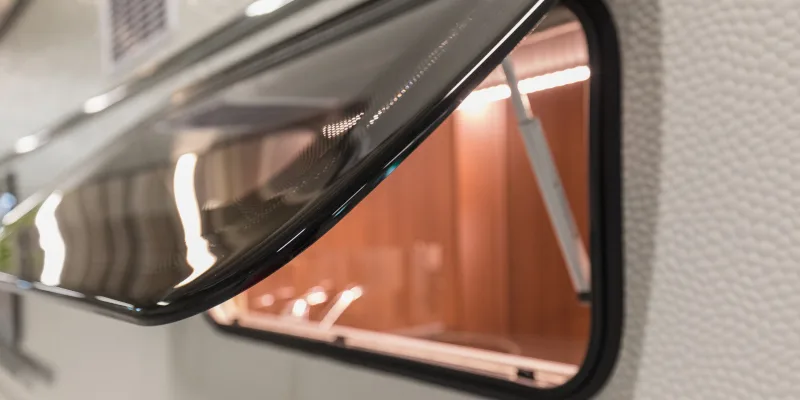
Using window coverings effectively can greatly improve your RV’s energy efficiency. Blinds, curtains, and shades help regulate the temperature inside your RV.
Close your window coverings during the hottest part of the day to block out the sun and keep your RV cool. Open them during colder times to let in natural warmth and light.
By managing your window coverings, you can reduce the need for heating and cooling, saving energy and keeping your RV comfortable. It’s a simple strategy that makes a noticeable difference.
8. Optimize Water Heating
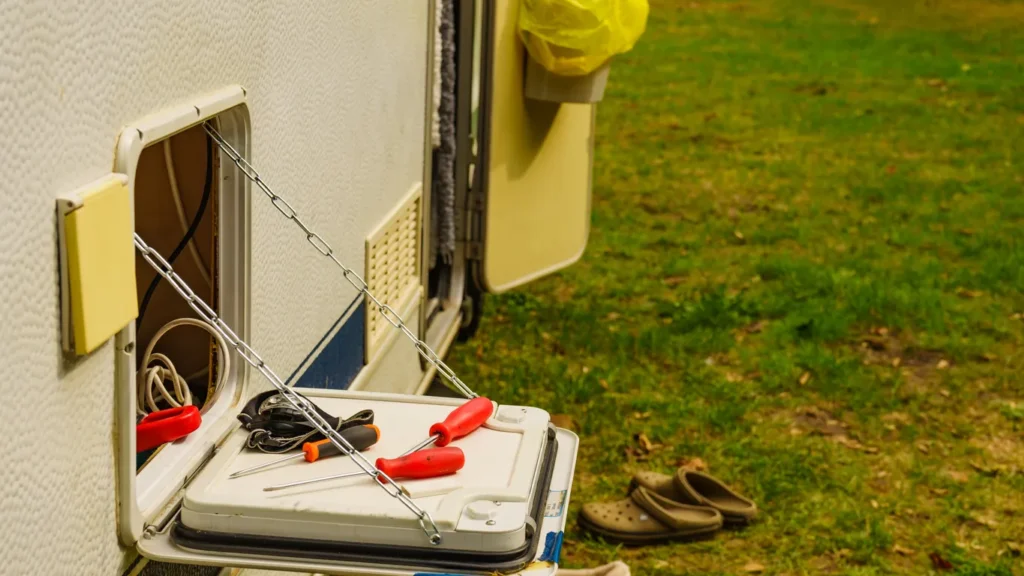
Optimizing your RV’s water heating can lead to significant energy savings. Consider installing a tankless water heater, which heats water on demand and avoids the energy waste of keeping a large tank of water hot.
Using solar water heaters is another excellent option. They harness the sun’s energy to heat your water, reducing your reliance on gas or electricity.
Adjust the thermostat on your water heater to a lower, but still comfortable, temperature. By optimizing your water heating system, you can enjoy hot showers and dishwashing without the hefty energy bill.
9. Maintain Your RV Regularly
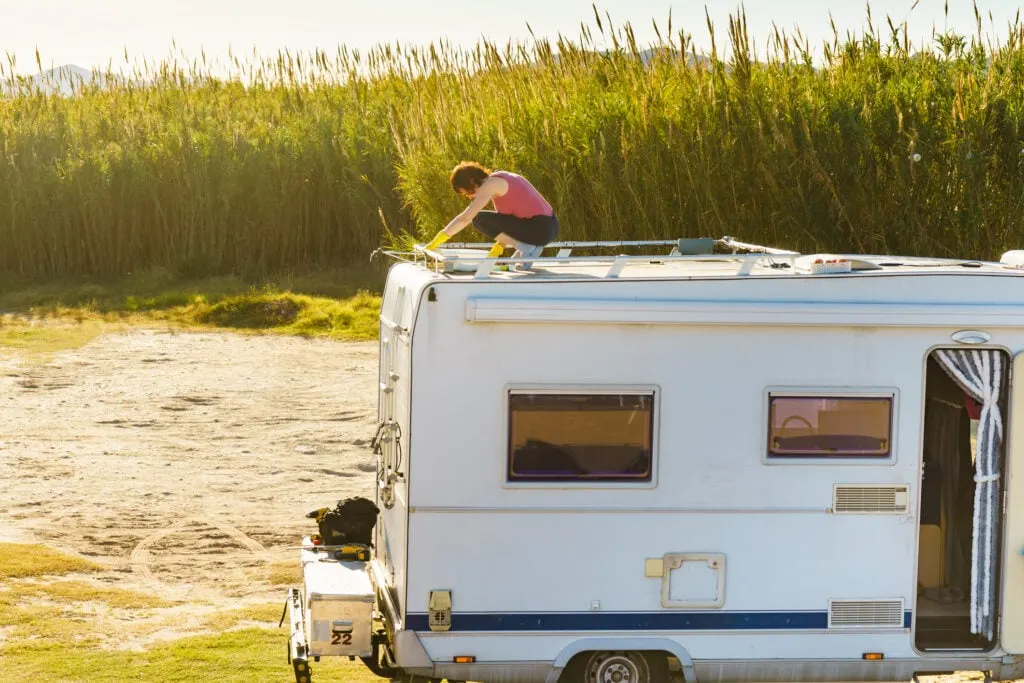
Regular maintenance is key to keeping your RV energy-efficient. Simple tasks like changing air filters, checking tire pressure, and cleaning your fridge coils can make a big difference.
Ensure that all seals around windows and doors are intact to prevent drafts. Regularly inspect your RV’s insulation and repair any damages to maintain optimal temperature control.
Keeping your RV in top shape not only improves energy efficiency but also extends the life of your vehicle. Routine maintenance helps you catch potential issues early, ensuring a smoother, more efficient ride.
10. Use Fans Instead of Air Conditioning
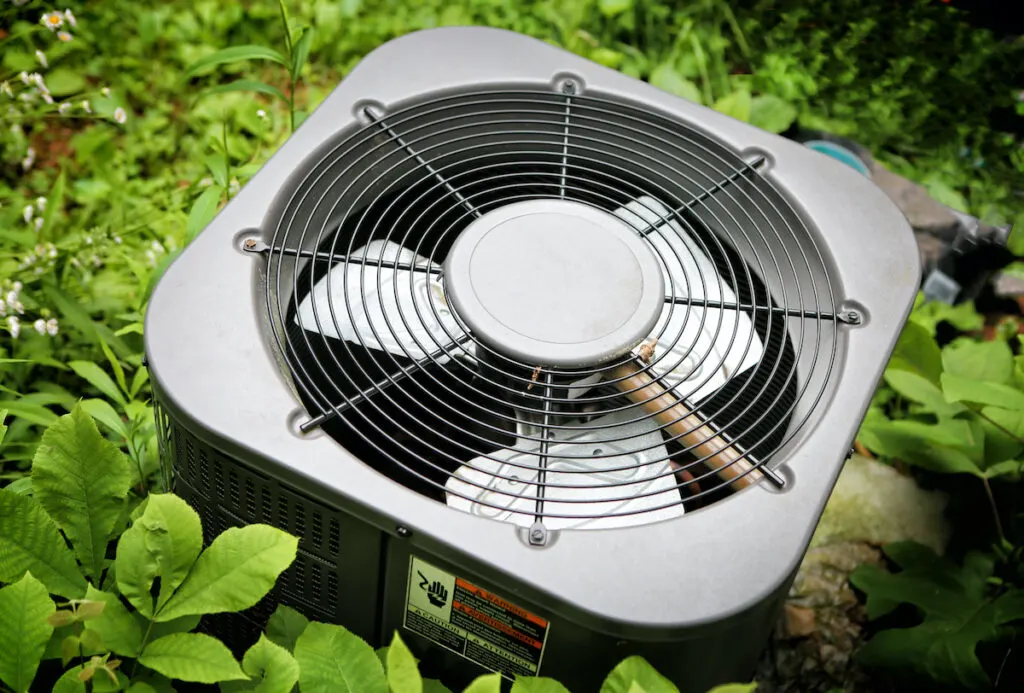
Using fans instead of air conditioning can significantly reduce your energy consumption. Fans use much less power and can still effectively cool your RV by circulating air.
Place fans strategically to maximize airflow. Use them in combination with open windows to create a refreshing cross-breeze, which can be surprisingly effective in maintaining a comfortable temperature.
Relying on fans over air conditioning helps conserve energy, especially when you’re off-grid. It’s a simple change that keeps you cool while saving power and money.
11. Cook Efficiently
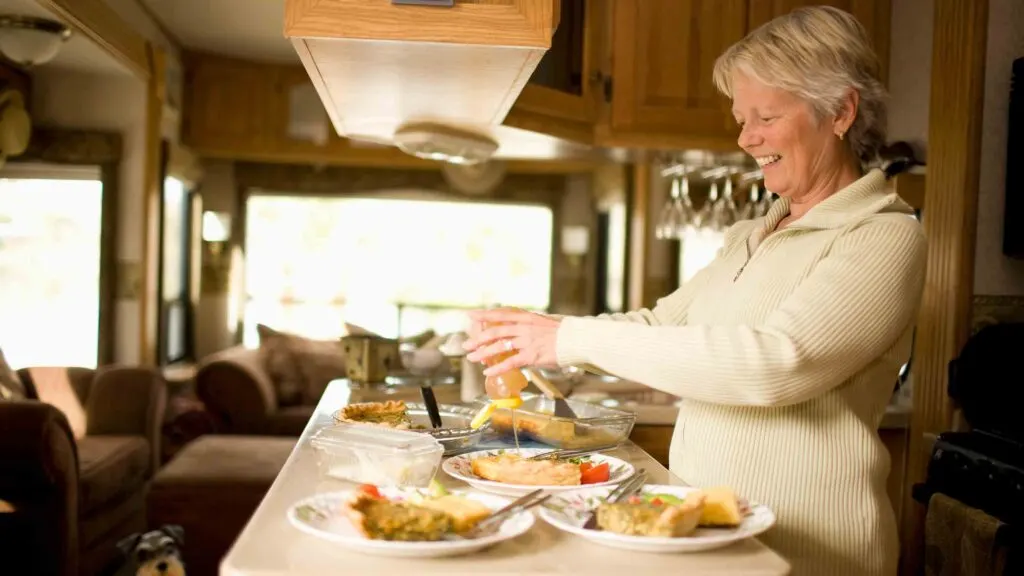
Cooking efficiently in your RV can save both energy and time. Use appliances like microwaves, pressure cookers, or slow cookers, which consume less power than traditional ovens.
Plan meals that require minimal cooking time or use a single appliance to prepare multiple items. This reduces the energy needed for cooking and keeps your RV cooler by avoiding prolonged use of heat-generating appliances.
Additionally, consider cooking outdoors on a portable grill to save energy and keep the heat outside. By adopting efficient cooking practices, you can enjoy delicious meals while conserving energy in your RV.
Conclusion
Start implementing these tips today to make your RV more energy-efficient and enjoy lower energy costs on the road! By upgrading your lighting, improving insulation, and maintaining your RV regularly, you can create a more sustainable and cost-effective RV lifestyle. Enjoy your travels while being kind to your wallet and the environment!
